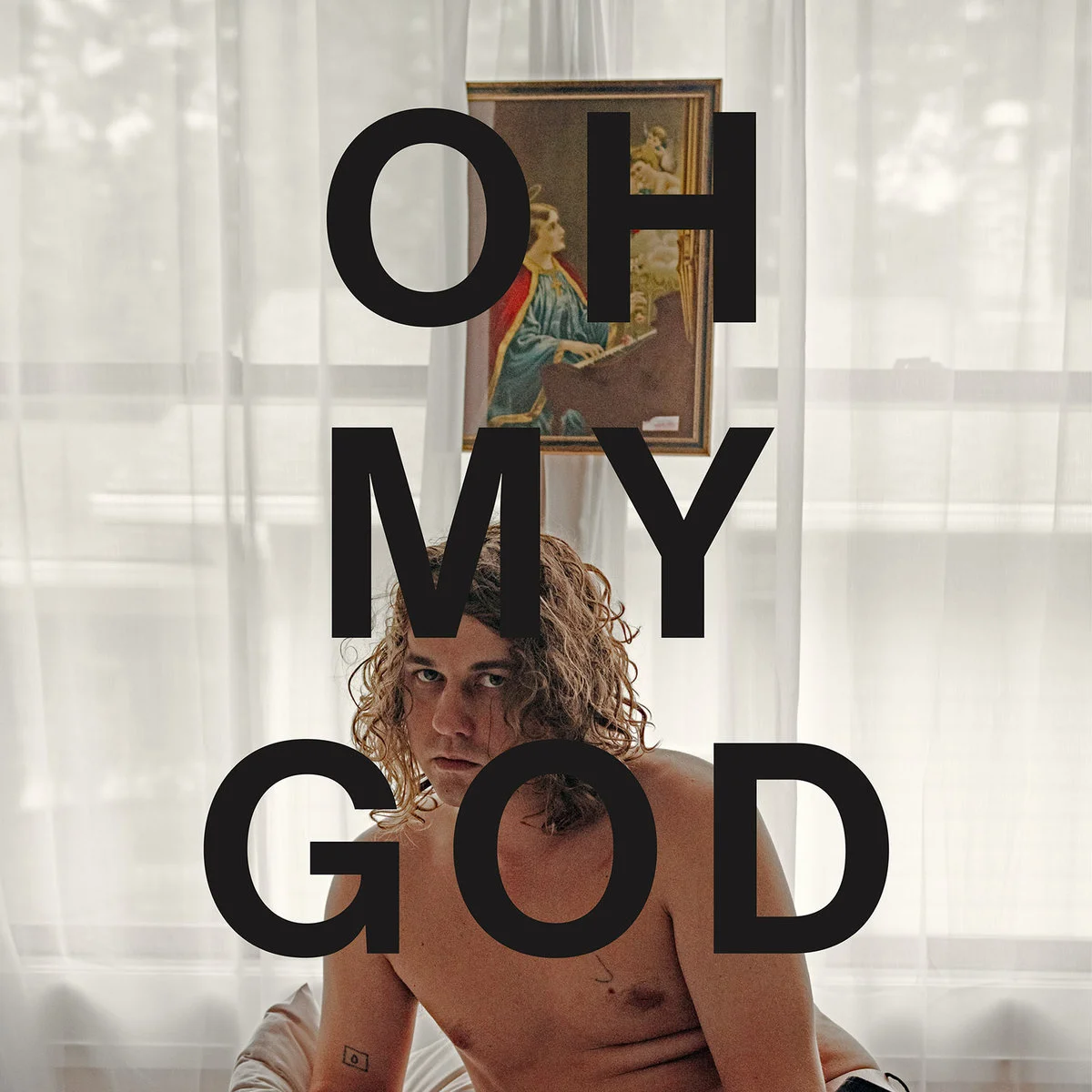Oh My God, Kevin Morby
Ben Dumbauld
Kevin Morby’s fifth studio album, Oh My God, begins with the sound of an upright piano, past its prime—the kind you find in church backrooms, probably donated and used mostly to accompany Sunday school songs. He plays a flurry of clustered, bluesy notes up and down the keyboard before settling in on the chords, hammered out in steady quarter notes. It’s a good opening for an album, evoking a moment when sporadic musical noodling suddenly, as if through unknown inspiration, coalesces into song. I first listened to Oh My God the day my wife’s great aunt died. After the piano introduction, Morby starts singing a repetitive, “Oh my Lord, come carry me home.” It seemed appropriate. Perhaps more than coincidental.
Reviewers of Oh My God seem quick to tell you it’s a “non-religious religious album.” But it sounds pretty religious to me. The introductory piano runs were inspired by Emahoy Tsegué-Maryam Guèbrou, an Ethiopian nun who, in addition to composing piano pieces, painted religious icons. The usual guitars in Morby’s past albums are largely substituted for these Guèbrou-inspired piano lines, in addition to low organ drones (“Nothing Sacred/All Things Wild,” “Savannah”) which break free into an ecstatic solo in “Hail Mary.” Gospel mmms and ahhs are introduced early and reappear throughout, while hand claps and rolling tom toms on “No Halo” evoke revival songs as interpreted by Nina Simone. “Congratulations” begins with a sonic collage of prayers before erupting in exaltation, a joyful noise in a thundering triple meter. Angels, devils, death and holiness proliferate in the lyrics.
But if this is indeed a “non-religious religious” album, perhaps all these indications of religiosity should be construed as an account of religious phenomenon as it impacts the secular world. The album’s title, and the various contexts in which the phrase “Oh My God” is lyrically invoked throughout, hints at the possibility that it is a secular analysis of the religious, as does “Hail Mary,” which plays on the phrase’s prevalence both in church and on the football field.
But Morby is songwriter, not a removed observer of current culture, and nothing in Oh My God strikes me as particularly clinical or detached. It’s personal, intimate, and heartfelt. The entire album flowered from 2016’s “Beautiful Strangers,” a song written after the Pulse Nightclub shooting in Orlando. The musical DNA of “Beautiful Strangers” appears throughout Oh My God, most visibly in the songs “Oh My God” and “OMG Rock n Roll,” which were extracted from a few lines of “Beautiful Strangers” and given a life of their own. But the connection is also found more subtly, as in the sparse congas in “Nothing Sacred/All Things Wild.” The concept of being powerless before the weather, both metaphorically and literally, is a major theme both in “Beautiful Strangers” and Oh My God. But more than any of this, it’s the insistence on compassion in the face of uncertainty, death, and terror that connect these two pieces of work. That Morby is able to express such a message so simply and powerfully is a testament to his aptitude as a songwriter. My favorite line in “Beautiful Strangers” is the simply articulated “Oh, I'm sorry / Oh, I'm sorry / Freddie Gray.” “Mama I’m scared,” he sings over a flowing harp in Oh My God’s “Piss River,” before responding “I know you are baby, I am scared too.”
If I had to guess, it is this sentiment in Oh My God that might compel one to distance the album from religious territory—which is more of an indictment on the perceived state of religion in America than anything else. The album’s pronounced sense of frightened bewilderment with life’s uncertainties is opposed to the all-too-often accepted notion today of religion as a promised answer to all life’s questions. While raised nominally as a Methodist, most of Morby’s experience with religion came from the hellfire billboards on Kansas City highways—a widely disseminated version of religion, undoubtedly, but one ill-suited for someone as thoughtful and forgiving as Morby. Inevitably, part of me wonders: if those billboards reflected experiences with religion I’m more accustomed to—maybe something like “attend or not, we’ll love you anyway,” or “come worship with people who also have doubts”—would Morby have described the album a bit differently?
Ultimately, though, how Oh My God is categorized matters far less than what it does. It is an album that courageously confronts the terrible confusion of the world, and responds not with righteousness or assuredness, but humility and compassion. If that’s not religious, it’s what religion ought to be. “Everything we do is a mess,” Morby sings, “but oh honey, may this mess be blessed.”
Ben Dumbauld is a writer and musician currently living in New York City. He holds a PhD in Ethnomusicology from the CUNY Graduate Center, and is the Director of Content at the Rock and Roll Forever Foundation, a music education nonprofit. His writing has appeared in American Music Review, The Journal of Appalachian Studies, Ethnomusicology Review, Cassette Gods, and the collected volume Death and the Rockstar.

